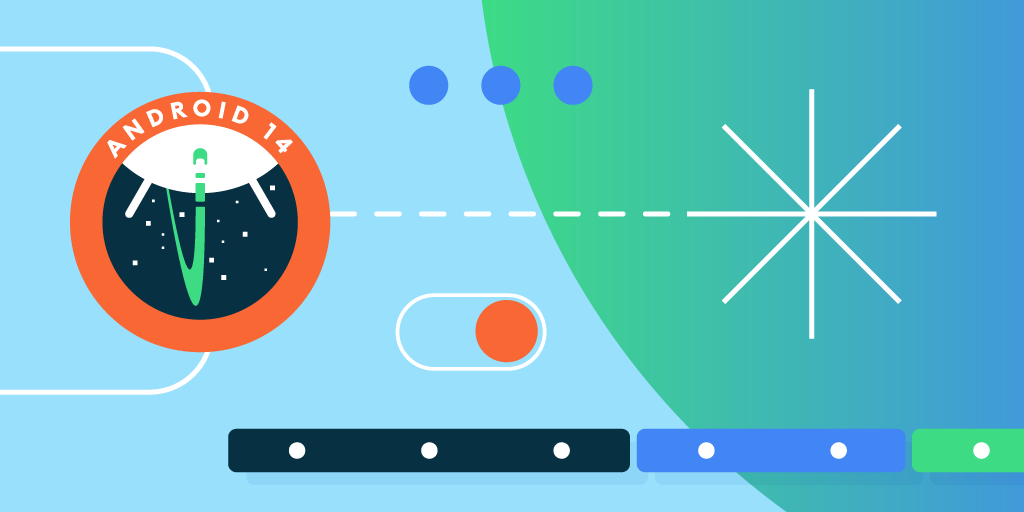 ☰
🔍
☰
🔍
07 Haziran 2023
 Posted by Dave Burke, VP of Engineering
Posted by Dave Burke, VP of Engineering
With today's Android 14 Beta 3 release, we're continuing into the next phase of the Android development cycle. It builds upon our core themes of privacy, security, performance, developer productivity, and user customization while continuing to improve the large-screen device experience on tablets, foldables, and more.
Beta 3 takes Android 14 to Platform Stability, which means that the developer APIs and all app-facing behaviors are now final for you to review and integrate into your apps. Thank you for all of your continued feedback in getting us to this milestone.
There's a lot to explore in Android 14 and test in your apps. Today with Beta 3, we’re highlighting new accessibility features such as non-linear font scaling, privacy upgrades including partial photos/videos access, new animation support in gesture navigation, and features that further align with the OpenJDK 17 LTS release.
With Platform Stability in Beta 3, you can confidently develop and release any necessary compatibility updates. Please start your final compatibility testing now and prepare to publish any necessary updates so you can get valuable feedback during the remainder of the beta releases. This will help ensure a smooth app experience ahead of the final release of Android 14 later this year.
Each release of Android contains changes to the platform that improve privacy, security, and the overall user experience. These changes can affect your apps. Testing your app involves installing your production app onto a device running Android 14 Beta 3; you can use Google Play or other means. Work through all the app's flows and look for functional or UI issues. Review the behavior changes to focus your testing. Changes that may impact your app include:
Please review the behavior changes section to see all of the changes that may impact the compatibility of your app or game. If you find any issues with libraries and SDKs in your app, try updating to the latest library or SDK version, reaching out to the developer for help if necessary.
Once you’ve published the compatible version of your current app, you can start the process to update your app's targetSdkVersion. Review the behavior changes for apps targeting Android 14 and consider using the compatibility framework to help you detect issues quickly. Here are some of the changes to test for (these apply only to apps with targetSdkVersion set to API 34 or higher):
Today's Beta 3 release has everything you need to try the Android 14 features, test your apps, and give us feedback. For testing your app with tablets and foldables, you can test with devices from our partners, but the easiest way to get started is using the 64-bit Android Emulator system images for the Pixel Tablet or Pixel Fold configurations found in the latest preview of the Android Studio SDK Manager. You can also enroll any supported Pixel device here, including the new Pixel 7a, to get this and future Android 14 Beta and feature drop Beta updates over-the-air.
For the best development experience with Android 14, we recommend that you use the latest release of Android Studio Hedgehog. Once you’re set up, here are some of the things you should do:
- Try the new features and APIs. Report issues in our tracker on the feedback page.
- Test your current app for compatibility – learn whether your app is affected by default behavior changes in Android 14. Install your app onto a device or emulator running Android 14 and extensively test it.
- Test your app with opt-in changes – Android 14 has opt-in behavior changes that only affect your app when it’s targeting the new platform. It’s important to understand and assess these changes early. To make it easier to test, you can toggle the changes on and off individually.
We’ll update the beta system images regularly throughout the Android 14 release cycle.
If you are already enrolled in the Android 14 Beta program and your device is supported, Beta 3 will be made available to you as an Over The Air update without taking any additional action.For complete information on how to get the Beta, visit the Android 14 developer site.
Java and OpenJDK are trademarks or registered trademarks of Oracle and/or its affiliates.